Advertisements
Advertisements
प्रश्न
Find out how much water (in mugs or buckets) is used in your house for each of the following.
 |
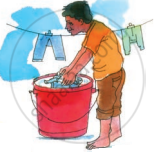 |
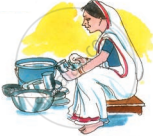 |
 |
| ______ | ______ | ______ | ______ |
उत्तर
 |
 |
 |
 |
| 1 bucket | 2 buckets | 2 buckets | 2 mugs |
APPEARS IN
संबंधित प्रश्न
The donkey looked confused and asked - Ten glasses of 100 mL each. How much is that?
How much kheer can you have?
List things we use more than one litre at a time.
- Water for taking bath.
- __________________
- __________________
- __________________
Place your litre jar below the leaking tap so as to catch all the drops in the bottle. Note the time. After one hour check, how much water is in the bottle?
 |
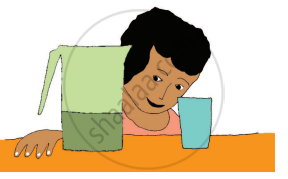 |
What are Naima and Jeetu doing?
Match the Right Pairs
| About 12 liters |
(to measure milk) |
| Less than Half litre |
(water tank) |
| About 5 litres |
(bucket) |
| 1000 litres |
(eye drops bottle) |
| Half litre |
(water suraahi) |
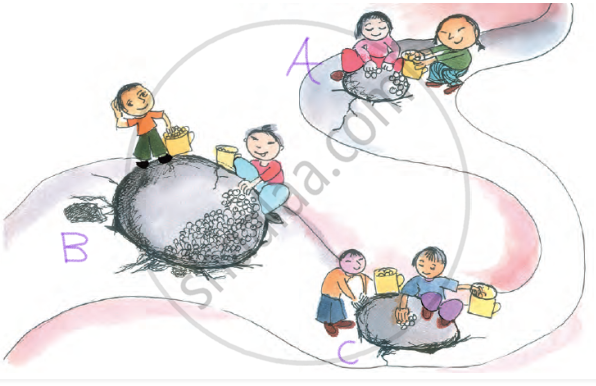
Which is the biggest pothole?
There is a fair in Chaitra's village. Chaitra, Nazim and Aneesh want to put up a stall to sell lemon drink. They make a  bucket full of lemon drink.
bucket full of lemon drink.
They use two  different sizes of glasses.
different sizes of glasses.

Nazim found that two big  glasses fill the
glasses fill the  jug.
jug.
Shabnam wants to buy one  jug full of lemon drink.
jug full of lemon drink.
How much does she need to pay?
Anil is a milkman. He gives the same amount of milk at Rani's house every day. He uses a  mug three times to fill Rani's milk pot
mug three times to fill Rani's milk pot  .
.
One day Rani's mother gave her a different  pot to take milk. Every day Rani's
pot to take milk. Every day Rani's  pot would fill to the top. But today Rani found that the pot
pot would fill to the top. But today Rani found that the pot  was not filled completely.
was not filled completely.
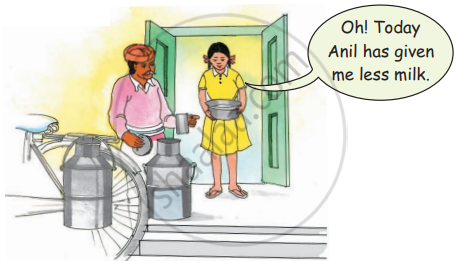
Do you think Anil has given Rani less milk? Help her.
Do you want to know how the water in the  pitcher came up?
pitcher came up?
Take two  glasses of the same size.
glasses of the same size.
Fill half of each glass with water.
You have to put tamarind (imli) seeds in the first glass to raise the
water to the top. Guess how many seeds you will need to put in.
Now, do it. Count the number of seeds used.
Now put the same number of marbles in the second glass.
What happens?
Repeat it with stones.
What happens now? Why?
Talk about it in the class.
 |
 |
 |





